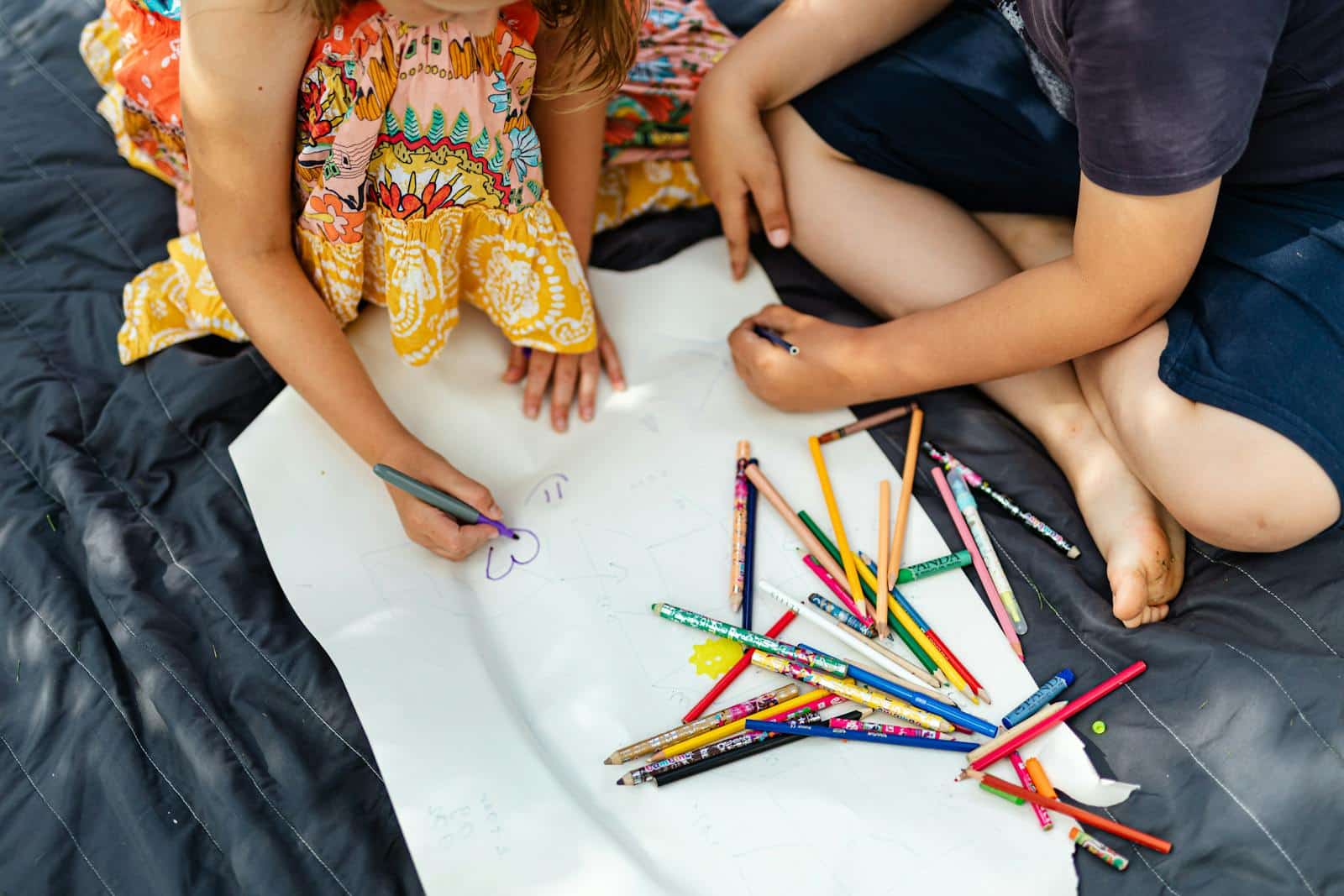Every single parent dreams of their children finding that spark, the magical and unstoppable excitement that makes them dive into their schoolwork with passion and curiosity. Whether it’s storytelling about Dragons or solving tricky maths problems, we all want to see our children light up about learning. It’s one of the best feelings ever, and it can make you feel reassured as a parent that they are in a comfortable and secure space to the point that they are willing to learn.
But let’s be honest, school work isn’t always thrilling, and some days it’s full of yawns, complaints and sudden urgent needs to clean their room instead of doing homework. There are some fun and simple ways that you can help your kids to be passionate about learning, though, and we’ve put together a list of those below.

Photo by Photo By: Kaboompics.com on Pexels
- Make it a personal adventure. The easiest way is to help your children to become passionate about learning is to connect their schoolwork to their interests. They may not have much interest in double consonants right now, but if you can tie those into zoo stories, animals, space, or planets in their problems, then you’re going to help them to turn a chore into more than just a chore. This is passion in the making.If you can make it a personal adventure, your children will have fun with it.
- Let them be the expert. Kids love to teach their parents and letting them be the expert can give you a chance to flip the script and helps to build their confidence. You can ask them to explain a maths problem to you or a science issue. You can ask them to quiz you on some spelling words while you quiz them. You can even ask.If they could teach you how to break words into syllables or sounds. When they do this, it’s going to reinforce their own learning and give them a little boost of “Hey, I actually get this!”. Plus, pretending to be a confused school student who gets everything wrong is instant giggles.
- Keep celebrating progress. Kids are more likely to be passionate about what they’re doing at school when they feel successful. Instead of focusing on some sort of perfection, which can feel unattainable to a child, focus on their progress. Finishing a paragraph or remembering a tricky spelling rule, or even just sitting down to get started should all be celebrated. You could do sticker charts, star charts and even a high 5 on getting the correct answers. You can voice that you feel proud of them and let them feel your love. Fill them up because it makes all the difference in helping them be passionate at school.
- Create a fun environment for learning. This can make a massive learning difference for your children. Setting up a cosy learning nook with plenty of lighting and colourful supplies, or even a special thinking cap that they can wear during homework time can really help. Obviously, this setup is going to be age appropriate, so grab their favorite snack and invite their stuffed animal study buddy. It’s time to knuckle down and get studying done in a way that makes them feel in control and happy.
- Turn learning into a game. Games are like magic to children because they take the pressure off and turn learning into something that they want to do. Bingo games with bonus points for words with double consonants or math. Scavenger hunts where they can find numbers of things in the house can give them a lesson without them even realizing it. Sometimes the chore is in knowing they have to learn, whereas if they’re playing games, they don’t feel like they’re learning, they feel like they’re having fun.
- Get them to move their bodies. Some children are kinesthetic learners, which means that they absorb things better when they’re moving. Spelling and reading practice can be active games like hopscotch, spelling or jumping for each letter. They can even clap for syllables just to keep their bodies moving faster.
- Give the kids some choices. If you want your children to be passionate about learning, then they’ll feel more passionate when they have a say in how they learn. Do they want to do maths or reading first? Would they like to write with a pen or would they like to type the paragraph? Would they like to use markers or make a comic strip? If they feel like they are getting choices, then they’re going to feel excited to do so.
- Show them how their learning works in the real world. Sometimes children get frustrated with their learning and disengage because they don’t understand how the learning on the page will translate into the real world. Show them how spelling helps them to write stories and read signs and letters. Maths is used in cooking and shopping. Reading opens up new worlds. All of these things can help them to feel more passionate about what they’re learning.